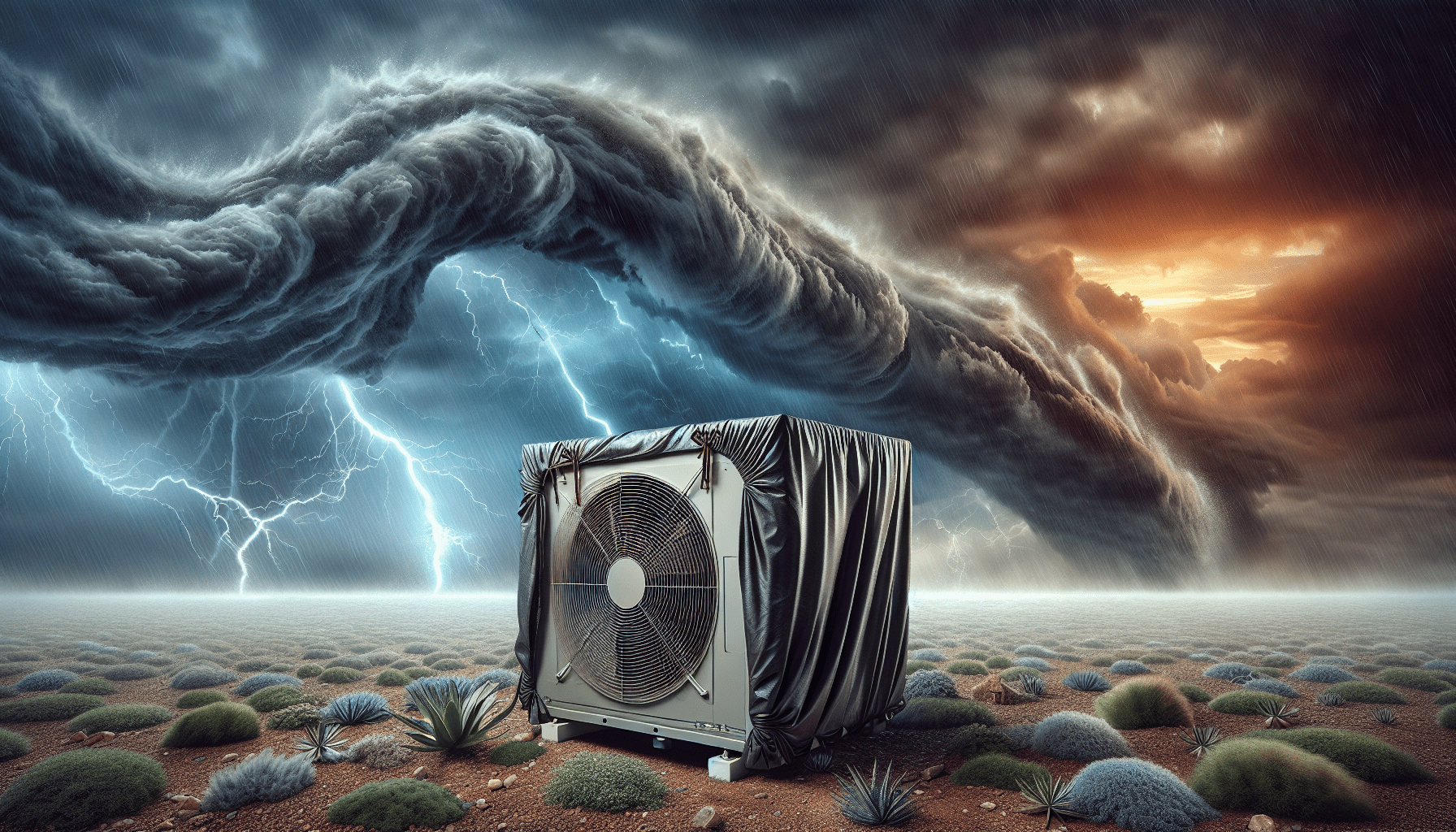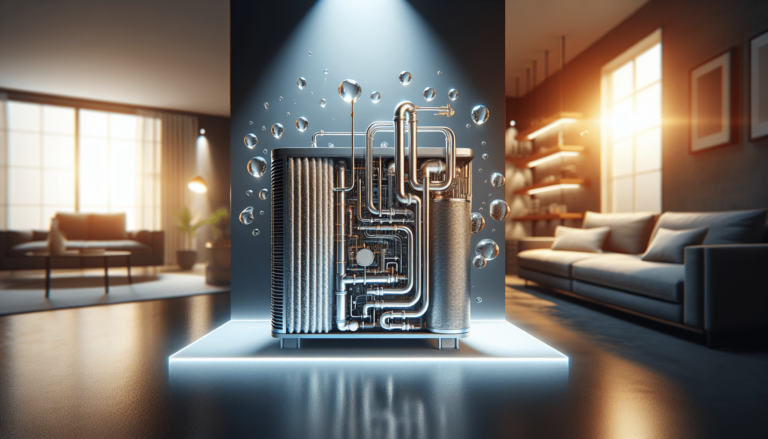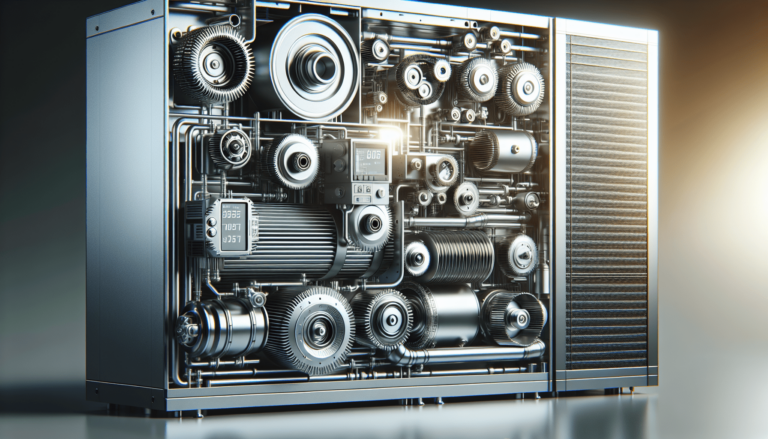

HVAC Services
Get Professional Repairs From The Area's Trusted HVAC Technicians. Ask About Our Services! We Offer Professional Heating & Cooling System Repairs And Guarantee Long-Lasting Results.
Got Question? Call us: (850) 678-2665Financing
Protecting Your HVAC During Extreme Weather Events
Shield your HVAC from the brutal smite of Mother Nature. Discover tips to ensure your system survives storms, heatwaves, and polar vortexes unscathed. Stay cool—literally!

Have you ever thought about how vulnerable your HVAC system is during extreme weather events? Living in a place that experiences such extremes can be harsh, not only on you but on your essential household systems as well. Your HVAC system is crucial for maintaining a comfortable indoor environment, but it can take quite a beating during storms, extreme heat, or cold spells. Understanding how to protect it can save you from unexpected breakdowns and costly repairs.

Understanding Your HVAC System
To effectively protect your HVAC system during extreme weather, you first need to understand what it does and why it’s so important. HVAC stands for Heating, Ventilation, and Air Conditioning. This system is responsible for heating your home in the winter, cooling it in the summer, and ensuring proper ventilation and air quality all year round. In other words, it’s your home’s life support system when it comes to indoor climate control.
Components of an HVAC System
Your HVAC system comprises several components, each playing a critical role. Here’s a quick breakdown:
| Component | Function |
|---|---|
| Furnace | Heats air during cold weather |
| Air Conditioner | Cools air during hot weather |
| Heat Pump | Transfers heat to or from the building |
| Ductwork | Distributes conditioned air throughout the home |
| Thermostat | Controls the temperature setting |
| Air Filters | Clean the air before it reaches the ducts and your living spaces |
Now that you know what makes up your HVAC system, let’s look at how you can protect it.
Preparation Before Extreme Weather Hits
Preparedness is your best defense against the havoc that extreme weather can wreak on your HVAC system. The following steps will help you ready your system for whatever Mother Nature throws your way.
Regular Maintenance
Just like you need annual check-ups, your HVAC system benefits immensely from regular maintenance. Schedule a professional inspection at least once a year to make sure everything is in tip-top shape. This small investment can save you a heap of trouble later.
Secure Outdoor Units
Outdoor HVAC units are particularly vulnerable during extreme weather events. To protect them:
- Anchor the Unit: Ensure that your outdoor unit is securely anchored to prevent it from tipping over or moving during strong winds or floods.
- Use a Protective Cover: Invest in a weatherproof cover to shield the unit from debris and severe weather conditions.
Trim Surrounding Vegetation
Overhanging branches and loose vegetation can be dangerous during storms. Trim trees and bushes around your outdoor unit to minimize the risk of damage from falling debris.
Clean Air Filters
Dirty air filters reduce airflow, making your system work harder and increasing its vulnerability to extreme conditions. Replace or clean your air filters regularly to keep your system efficient and less susceptible to weather-related stress.
During Extreme Weather Events
When extreme weather is imminent, swift action can prevent significant damage to your HVAC system. Here’s how to act in the face of various threats.
Power Surges and Outages
Extreme weather can lead to power surges that can severely damage your HVAC system. Be proactive:
- Install a Surge Protector: A whole-house surge protector can shield your HVAC system and other appliances from power spikes.
- Turn Off the System: If you anticipate a severe storm, it’s wise to turn off your HVAC system to protect it from electrical surges.
Flooding
Water and electronics don’t mix. Protecting your HVAC system from flooding involves several strategies:
- Elevate the Unit: If flooding is common in your area, consider elevating your outdoor unit above the flood line.
- Seal Ductwork: Ensure that all ductwork joints are sealed to prevent water from entering and causing mold or mildew.
Extreme Heat
High temperatures can put tremendous strain on your air conditioning system. To help it cope:
- Close Curtains and Blinds: This simple step can keep your home cooler and reduce the workload on your AC.
- Use Ceiling Fans: Ceiling fans can help circulate cool air more effectively, easing the burden on your HVAC system.
Extreme Cold
When the mercury drops, your heating system has to work overtime. Keep it functioning smoothly by:
- Insulating Pipes: Insulate any exposed pipes to prevent them from freezing and bursting.
- Keep Vents Clear: Ensure that all vents, registers, and heat pumps are free from snow and ice.
After Extreme Weather Passes
Once the worst has passed, don’t just assume everything is fine. Post-storm checks can help you catch minor issues before they become serious problems.
Inspect for Damage
Once it’s safe to do so, inspect your HVAC system for signs of damage:
- Check the Outdoor Unit: Look for debris, dents, or other visible damage.
- Inspect Ductwork: Ensure that no parts are disconnected or filled with water.
- Thermostat Function: Make sure your thermostat is working correctly and has not been damaged.
Call a Professional
If you suspect any damage, it’s best to call in the experts. A professional HVAC technician can thoroughly inspect your system and perform any necessary repairs.

Long-term Strategies for HVAC Protection
Extreme weather events might become more frequent, so implementing long-term solutions is crucial for safeguarding your HVAC system.
Install a Backup Power Source
Having a backup power source, like a generator, can keep your HVAC system running even when the power goes out. This can be a lifesaver during temperature extremes.
Upgrade to a Robust System
If your HVAC system is particularly old or not designed for extreme weather, consider an upgrade. Modern systems are much more efficient and robust, offering better resilience against severe weather.
Smart Thermostats
Investing in a smart thermostat can provide better control over your HVAC system. These devices can optimize your system’s performance, particularly during extreme weather, and even send alerts if something goes wrong.
Common Myths About HVAC Systems and Extreme Weather
Let’s clear up some common misconceptions that might lead you astray when protecting your HVAC system.
Myth 1: Covering Your Outdoor Unit All Year Round is Good
While covering your outdoor unit can protect it during storms, leaving the cover on year-round can actually cause more harm than good. It can trap moisture, leading to rust and other problems.
Myth 2: Running Your System During a Storm is Safe
Running your HVAC system during a storm exposes it to power surges that can cause significant damage. It’s safer to turn it off during severe weather conditions.
Myth 3: HVAC Systems Don’t Need Maintenance if They’re New
Even new systems benefit from regular maintenance. Skipping these check-ups can shorten the lifespan of your system and reduce its efficiency.
Helpful Resources and Contacts
When it comes to protecting your HVAC system, you don’t have to go it alone. Here are some helpful resources and contacts:
-
Tempacure Heating and Air Conditioning
- Address: 325 Cedar Ave S, Suite B, Niceville, FL 32578
- Phone: (850) 678-2665
- Website: tempacurehvac.com
By staying proactive and informed, you can better protect your HVAC system during extreme weather events. Knowing how to prepare for, respond to, and recover from these conditions will keep your home comfortable and your system running smoothly.
Remember, you are your HVAC system’s best friend when it comes to weathering the storm. Whether it’s braving hurricanes, enduring heatwaves, or battling blizzards, taking these precautionary steps will ensure your indoor environment remains a sanctuary.
Real-life Scenarios and Success Stories
Sometimes, hearing how others navigated extreme weather events can provide valuable insights and inspiration. Let’s look at a couple of real-life scenarios where homeowners successfully protected their HVAC systems.
Scenario 1: Surviving a Hurricane with Minimal Damage
Jane from Niceville, FL, recounts her experience during Hurricane Michael. Before the storm, she secured her outdoor HVAC unit with a heavy-duty cover and anchored it firmly to a concrete slab. She also installed a whole-house surge protector and turned off her HVAC system as the storm approached. After the hurricane passed, she inspected her system for damage and found only minor debris, which she quickly cleared away. Her proactive steps saved her from costly repairs and maintained her family’s comfort during recovery.
Scenario 2: Winterizing an HVAC System for Extreme Cold
Tom, living in the northern states, faced a brutal winter with temperatures dropping well below freezing. Knowing the risks, he insulated his HVAC pipes and sealed ductwork to prevent leaks. He also kept his vents clear of snow and ice and utilized space heaters in key areas to reduce strain on his heating system. Tom’s foresight paid off, as he experienced no issues throughout the harsh winter months, and his energy bills remained manageable.
Common Pitfalls to Avoid
Knowing what Not to do is just as important as knowing what to do when protecting your HVAC system. Here are common pitfalls to avoid:
Neglecting Regular Maintenance
Skipping annual inspections and tune-ups can lead to a host of issues, particularly during extreme weather events. Make it a priority to have a professional check your system at least once a year.
Ignoring Warning Signs
Strange noises, reduced airflow, and inconsistent temperatures are red flags that something may be wrong. Ignoring these signs can result in severe damage, especially during weather extremes.
Procrastinating on Repairs
Small problems can escalate quickly during extreme weather. Address issues as soon as they arise to avoid costly repairs and prolonged downtime.
Final Thoughts
Your HVAC system is a significant investment, and protecting it from extreme weather is crucial for continued comfort and efficiency. By following these guidelines, you can mitigate risks and ensure your system remains operational when you need it the most.
Be proactive. Be prepared. And rest easy knowing you’ve taken the necessary steps to shield your HVAC system from the unpredictabilities of extreme weather. After all, a little forethought can go a long way in keeping your home a sanctuary, no matter what’s going on outside.







